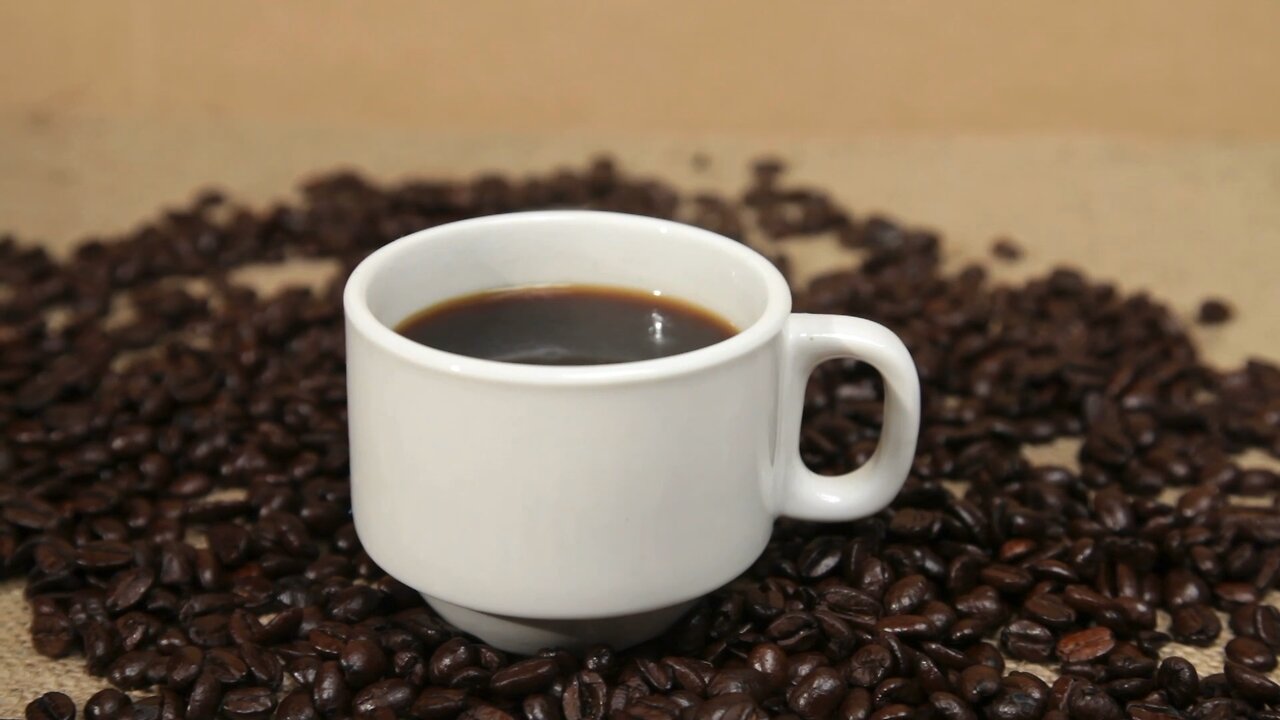Premium Only Content

Caffeine Conundrum: Does Your DNA Hold the Key to Coffee's Perks and Pitfalls?
#CoffeeLoversUnite
#BrewingMagic
#CaffeineChronicles
#CoffeeWisdom
#BrewtifulMornings
#SipAndSavor
#GeneticsOfCoffee
#CoffeeDebate
#CaffeineScience
#CoffeeHumor
#BitterSweetSymphony
#CoffeeCulture
#MorningMagic
#BrewedWithLove
#SarcasmAndCoffee
#CaffeineFix
#CoffeeConfessions
coffee. The elixir of life, the nectar of the gods, the magic potion that transforms groggy zombies into somewhat functional human beings every morning. For years, we've been embroiled in the heated debate of whether this dark, aromatic brew is a blessing or a curse. Scientists have been diligently working to unravel the mysteries of coffee's impact on our health, and lo and behold, they've now discovered that the answer lies in our genes. Yes, you read that right—your DNA holds the secret to whether coffee is your best friend or your worst enemy. So, let's dive into this freshly brewed revelation with a generous sprinkle of sarcasm and humor.
First, let's address the eternal optimists who swear that coffee is the panacea for all ailments. According to the coffee evangelists, this magical beverage can cure anything from a simple headache to existential dread. Feeling tired? Coffee! Need to focus? Coffee! Have a broken heart? Coffee! Lost your job? Coffee! Stubbed your toe? Coffee! It’s as if coffee is the superhero that swoops in to save the day, every day. If coffee were a person, it would likely be wearing a cape, dodging bullets, and rescuing kittens from trees.
However, the naysayers argue that coffee is nothing more than a bitter, dark liquid that brings nothing but jitters, insomnia, and a one-way ticket to Anxietyville. They claim that coffee is a wolf in sheep's clothing, seducing us with its rich aroma and comforting warmth, only to betray us with palpitations and a dependence rivaling that of a soap opera's most dramatic love affair. These folks would have you believe that every sip of coffee is like playing Russian roulette with your cardiovascular system.
Enter the scientists—and their penchant for complicating things with facts and data. In their quest to end the coffee debate once and for all, they've embarked on a journey through the labyrinth of human genetics. The latest study claims that the key to understanding coffee's effects lies not in the cup but in our very DNA. Imagine that! The answer was inside us all along, like some kind of caffeine-fueled epiphany straight out of a self-help book.
According to this groundbreaking research, certain genetic markers determine how our bodies metabolize caffeine. For some lucky individuals, coffee is metabolized quickly, allowing them to enjoy cup after cup with minimal adverse effects. These genetic lottery winners can guzzle espresso like it's water and sleep like babies. Meanwhile, the rest of us—those who drew the short genetic straw—process caffeine at a snail's pace, meaning that even a single cup can leave us jittery, wide-eyed, and contemplating the meaning of life at 3 AM.
Of course, this revelation leads to the inevitable question: how do you find out if you're a coffee-compatible mutant or an unfortunate caffeine-sensitive mortal? Simple! Just submit your saliva to a genetic testing company, wait a few weeks, and receive your personalized coffee prescription. It's like having your very own fortune teller, except instead of predicting your love life, it tells you whether you should be drinking a latte or a decaf herbal tea.
But let's not get too carried away. After all, genetic testing is not exactly a casual affair. It's not like you can just walk into a coffee shop, hand over a swab of your DNA, and get your results with your morning brew. And let's be honest, part of the charm of coffee is its unpredictability. Will this cup make you feel like a productivity powerhouse or a jittery mess? It's a gamble, a thrill, a caffeine-fueled adventure!
Moreover, imagine the social implications of this genetic revelation. Coffee shops could become the new battlegrounds of genetic superiority. "Oh, you can't handle a double espresso? How quaint. My genes allow me to drink a quadruple shot without breaking a sweat." Coffee snobbery would reach new heights, with people flaunting their caffeine tolerance like a badge of honor. Genetic discrimination would be the new frontier, and baristas would need PhDs in genetics to navigate the complex world of coffee orders.
In conclusion, the question of whether coffee is good or bad has finally been answered—by our genes. But let's be real, this revelation is unlikely to change our coffee-drinking habits. Whether you're a genetic marvel who can down a pot of coffee without batting an eye, or a caffeine-sensitive soul who gets jittery from a single sip, coffee is more than just a beverage. It's a ritual, a comfort, a tiny moment of joy in our often chaotic lives. So, let's raise our mugs—whether they contain regular, decaf, or something in between—and toast to the beautiful, complex, and utterly delightful mystery
-
 4:04:20
4:04:20
Nerdrotic
12 hours ago $49.47 earnedAmazon Takes 007! Hollywood is Lost, Disney Cancels WHO? | Friday Night Tights 342 /w ItsAGundam
167K39 -
 43:27
43:27
Tucker Carlson
12 hours agoRay Dalio: America’s Hidden Civil War, and the Race to Beat China in Tech, Economics, and Academia
161K188 -
 56:56
56:56
Candace Show Podcast
12 hours agoEXCLUSIVE: Taylor Swift Will Be Deposed. | Candace Ep 150
187K157 -
 1:03:52
1:03:52
IsaacButterfield
9 hours ago $4.34 earnedRepublican Vs 25 Transgender Activists | Jewish Outrage | Lizzo Loses All the Weight
55.7K14 -
 1:10:23
1:10:23
Edge of Wonder
13 hours agoChinese Biochips Hacking Minds? Quantum Control & Journey Song Mandela Effect
79.3K9 -
 2:15:46
2:15:46
Quite Frankly
16 hours ago"Ghosts, Robotics, and OBE's" ft. Dr. Albert Taylor 2/21/25
73.4K18 -
 55:52
55:52
LFA TV
1 day agoMaking Germany Great Again | TRUMPET DAILY 2.21.25 7PM
49.1K9 -
 1:52:26
1:52:26
2 MIKES LIVE
12 hours ago2 MIKES LIVE #183 Open Mike Friday with Hannah Faulkner and Adelia Kirchner!
35.8K -
 12:09
12:09
MrBigKid
12 hours ago $2.78 earnedNew Mossberg 590R: Tactical Homestead Defender
41.2K7 -
 25:43
25:43
Degenerate Jay
17 hours ago $1.64 earnedThe Future Of Grand Theft Auto Online Looks Grim
37.8K1